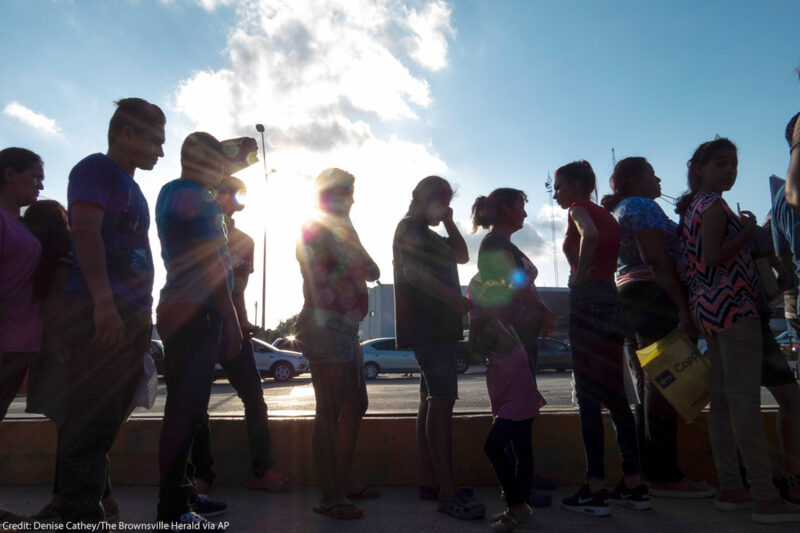My Family Came to Seek Asylum, But Found Danger Instead


One year ago, as part of a lawsuit, I was permitted to cross a bridge into the United States with my husband and three daughters — after more than 16 months living in danger and poverty, just beyond the Southern border. Our family is still trying to overcome the trauma of this ordeal. But now, the U.S. government has restarted the policy that caused us so much suffering, expelling asylum-seekers back into the cartel-controlled city of Matamoros, Mexico, and putting more families in danger.
The so-called “Migrant Protection Protocols” (MPP), first introduced by President Trump, required families like ours to stay in Mexico while waiting for their asylum cases to be heard. It didn’t matter that we had been forced to flee our country, where our lives were threatened. When we entered the United States to ask U.S. officials for protection, these officials instead expelled us into Matamoros, a dangerous Mexican border city that we had never been to. Mexican officials who processed our paperwork simply cast us out into the street.
In the end, we would spend 16 months fighting for our survival, waiting for our asylum case to be decided. After my daughter was attacked at the migrant encampment, we found a small, crumbling house to rent. It had a hole in the ceiling and only minimal furniture — some bed frames with no mattresses, some chairs, a little stand on which we placed a single gas burner to cook our meals. The water was contaminated and gave us a fungus on our skin. During the winter, it was brutally cold inside and we had no way to get warm.
My husband found work in a carpentry shop nearby. He earned little and was mistreated by his bosses and colleagues. In December 2020, just before the holidays, when the time came to pay him his wages and an end-of-year bonus, they fired him.
Even while my husband was working, what he earned was not enough to pay our rent and other expenses. Sometimes we couldn’t eat or we had enough to buy only bread and coffee. Other times we had just eggs and beans or instant soups. We sent the girls to bed early and kept them in bed until late because we didn’t have food to give them once they got up. When our girls got sick, we struggled to buy medicine.
While my husband worked, I stayed home to care for our girls. We knew that cartels controlled the city and that they routinely kidnapped and killed migrants like us. We regularly heard gunshots in the streets. My daughters and I stayed home all day, every day because going out — even for a moment — was too dangerous.
My daughters’ schooling was set back two years. They did not sleep. They did not eat. They didn’t have enough clothes.
A lot of people told us that it was all a lie, that no one would be let into the United States, and that we should go back to our country. But we couldn’t go back there because we feared that we would be killed. We had to bear the wait.
I know there were migrants who had it worse than we did and did not have even a crumbling home in which to hide from the cartels. But the daily suffering, fear, depression, and stress overcame us.
Even now, one year after getting out of the MPP and coming to the United States to pursue our asylum cases, we are haunted by our experiences. My daughters used to be happy girls. They liked to play, dance, and sing. Now nothing interests them. They always seem sad and they get irritated easily. Now that we have access to food, they barely want to eat. They are not like before. My husband and I also have this constant sadness. We cannot sleep well and we are not well. We are haunted by nightmares and flashbacks.
We are receiving treatment for this trauma — but it is always with us. We are doing our best to heal, to contribute to our new country, and to remain hopeful about our asylum case, which is still pending.
I know that at the border, more families are facing what we faced. They are seeking safety, and their lives are being shattered by policies like the MPP. I believe that seeking refuge is a right and that, like us, they should be allowed to exercise that right in the United States.
These families need our help; they should not be forced to endure more danger.
This piece was translated by Maribeth Bandas. You can read it in Spanish here.


